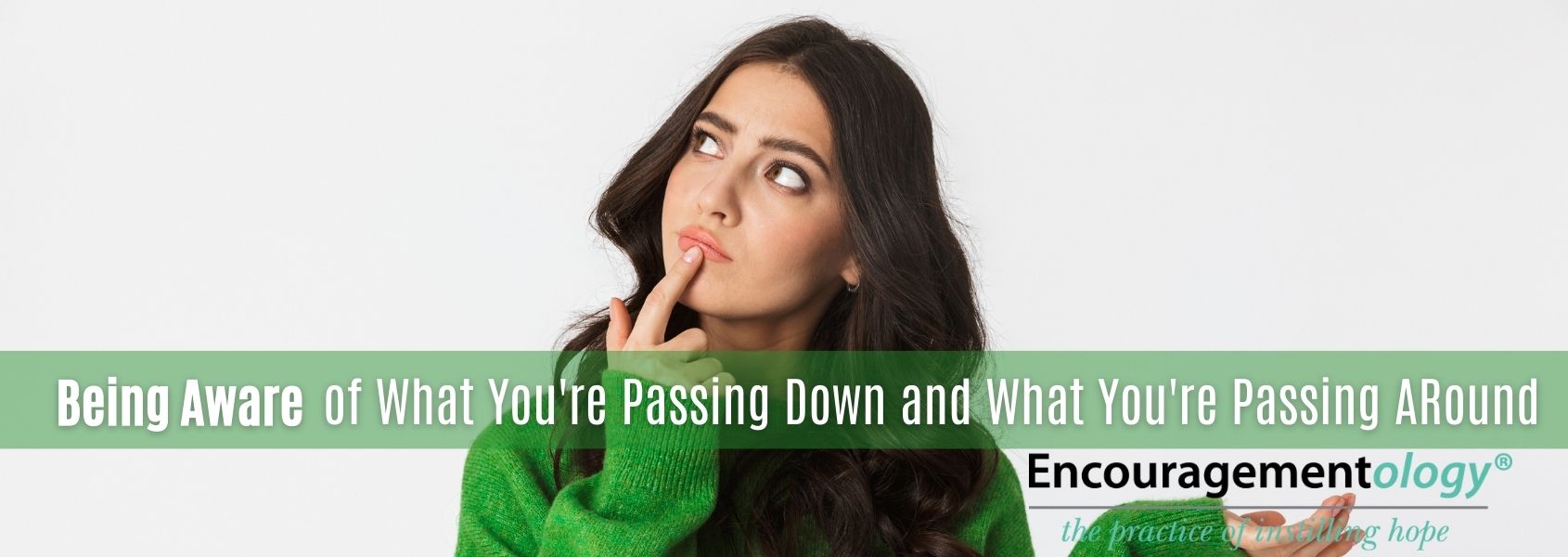SHOW NOTES:
On this show…we’re doing a mental and verbal inventory check and audit, to become more aware of what we’re passing down and what we’re passing around. Where do our ideas and opinions come from? How are our biases formed? Are we as open and accepting to traits and traditions as receiving and regifting Grandma’s china or have we installed solid filtering systems, protecting our minds and hearts from the legacy transfer of limiting and negative beliefs? Not sure? Then you’re in the right place listening to some ideas that might help you question, understand, reframe, and rethink ideas and opinions that no longer serve you.
Have you ever played hot potato? If you haven’t, let me explain. You must pretend you have a steaming hot potato in your hands and pass it around, making sure to let go of it as quickly as possible so you don’t get burnt. That means you have the hot potato only seconds before you pass it on.
Sounds kind of familiar, huh? When you encounter an idea, opinion, piece of news, or gossip (which are sometimes one and the same), how long do you sit with that information before passing it down or around? Do you take the time to question, wonder, research, or think? Or, are you so quick to inform that you pass it without a discerning thought?
Now, remember the telephone game? That is where a person whispers a word or phrase into the ear of the person next to them without any repeats and then that person, whispers what they heard to the next person, and so on and so on. The gag is when the last person repeats what they heard out loud to the group. They rarely have it correct or even close. Imagine how that idea could be impacting what we pass down and around.
Let’s start with what’s been passed down to you…
At The Center for Parenting Education, Audrey Krisbergh shares THE POWER OF FAMILY LEGACIES
CHALLENGE: be aware of what you think and say, where it came from, what you’re passing down, and what you’re passing around. Seek to understand, push back and test ideas and opinions that no longer serve you. You have the power to change your thinking.
I Know YOU Can Do It!

